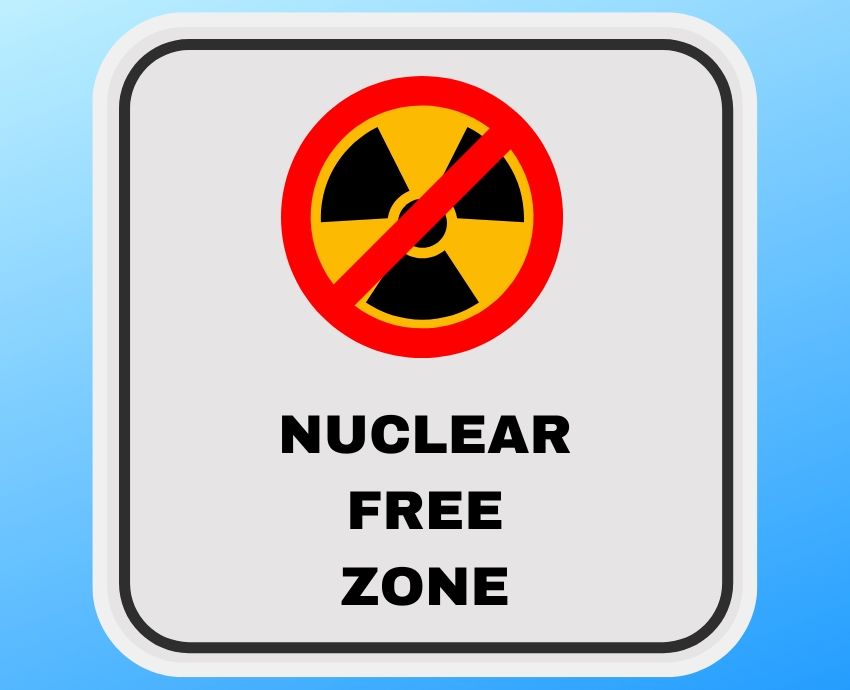
Merri-bek Council passed a motion declaring the local government area a nuclear free zone on April 12.
The motion was moved by Socialist Alliance Councillor Sue Bolton and seconded by independent James Conlan, formerly a Greens councillor.
Bolton told Green Left it was motivated by federal Labor’s decision to spend billions on nuclear-powered submarines, as part of the AUKUS military alliance.
“The $368 billion price tag is so huge that it will drain money away from local councils and state governments, and important services.
“The billions could help solve the housing crisis and fix under-funding of disability and aged services. It could also go a long way to addressing the energy transition,” Bolton said.
The motion passed 6 votes to 5, and was supported by independent councillor Monica Harte from the Sue Bolton team, as well as Greens councillors.
Right-wing independent Oscar Yildiz said council should stick to “roads, rates and rubbish”. Labor Right councillor Lambros Tapinos moved to defer the motion to 2050 “when the first nuclear submarine will arrive”. That was voted down, but he then gagged debate, meaning councillors who supported the motion were not able to explain why.
Councils across Australia, and around the world, have a history of declaring themselves nuclear-free. The former Brunswick Council was nuclear free, before being folded into Merri-bek (Moreland) in 1994.
More than 100 local councils declared themselves nuclear free at the height of the 1980s and early 1990s’ anti-nuclear movement, including Sydney City, Brisbane City, Fremantle, Wollongong, Melbourne City and Ipswich.
Then, the movement mobilised hundreds of thousands of people into the streets against nuclear-armed warships, nuclear weapons and nuclear energy.
“Declaring Merri-bek a nuclear-free zone council, along with many other councils, means it is opposed to the transportation of nuclear waste, or nuclear material through the municipality,” Bolton said, adding that radio isotopes for medical treatment and research would, of course, be exempt.
The motion said the Port of Melbourne should not be used to host nuclear submarines and opposed the establishment of a nuclear waste dump.
Several local residents spoke in favour, including long-time peace activist Professor Michael Hamel-Green, who said there is “no justification for such an obscene outlay on nuclear-war-fighting submarine systems”.
“It will drive a new arms race in our region, bring us ever closer to nuclear conflagration and divert scarce funds away from everything we need to do to protect our region and the planet from future catastrophe.
“Given the lack of prior consultation on the nuclear submarine issue, it is vital that local communities campaign to reverse this disastrous nuclear submarine decision.”
Harte, who is an emergency housing worker, said it was wrong to argue that this motion was not “council business”.
“Every layer of government intersects,” she told Green Left. Councils do not have full responsibility for roads, rates and rubbish: the most dangerous roads in Merri-bek are owned by the state. Councils can advocate, but the authority and dollars lie with the government.”
Harte said that as councils are already underfunded and the pressures were becoming more acute, council had to make it its business to campaign against such wasteful and dangerous expenditure.
“The nuclear arms race is about a war-based economy. This is what Australia is joining, diverting insane amounts of our money to military expenditure without even any debate in parliament.”
It was also pointed out that Merri-bek Council voted last November to join 42 councils signing up to the International Campaign to Abolish Nuclear Weapons’ Cities Appeal. The appeal calls on the government to sign and ratify the Treaty on the Prohibition of Nuclear Weapons.
Australia is also a signatory to the South Pacific Nuclear Free Zone Treaty, which formalises a nuclear-weapon-free zone in the South Pacific and is a signatory to the Treaty on the Non-Proliferation of Nuclear Weapons.
“The nuclear-powered submarine deal betrays Australia’s non-nuclear policy and treaty obligations,” Harte said. “It opens the door to a dangerous and unnecessary domestic nuclear power industry, weapons proliferation and a regional arms race.”
Merri-bek joins a growing number of unions, civil society organisations and Labor branches opposed to the AUKUS nuclear-powered submarines.